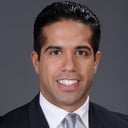Hi, I have performed many SMAS facelifts for over 30 years and have performed many minimally, invasive SMAS. Non smiling photos of your face from the front and side would help in the evaluation. You are correct to be concerned, especially if your BP is prone to that level of fluctuation....the situation doesn't matter, if the BP goes up that high after surgery your risk of hematoma would go up exponentially. You should see your GP and get the pressure under better control and manage your GAD. You may also consider a minimally, invasive SMAS facelift that has limited dissection and as such far less risk of hematoma.





